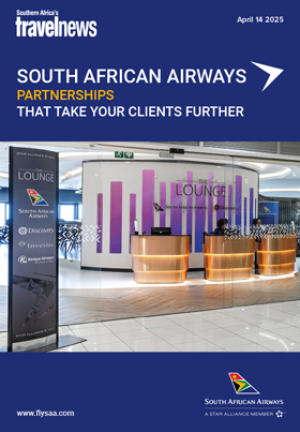NB: This story was updated (October 13, 06h46) to show IATA's response to questions posed by Travel News. See the final three paragraphs.
Travel agents are challenging the way airlines are breaching trust by the use and misuse of sensitive customer contact information, and Asata is asking its members to report any airlines that bypass the agent and follow up with direct marketing offers to the client.
Otto de Vries, CEO of Asata, said the problem of direct, unsanctioned marketing by airlines to agency customers was rife, and not only in South Africa. He said travel agencies, working through the World Travel Agents Associations Alliance (WTAAA), had been busy engaging with airline representatives of Iata for solutions.
De Vries said it had been proposed that in future, the travel adviser’s details could be used during the booking process so that their details would essentially be stored in the booking PNR. He said the airlines had provided a lengthy list of possible scenarios when it should be deemed appropriate for an airline to contact the customer directly, but that this too was still to be finalised.
It was his understanding that the relevant working groups would vote on the final proposals at an upcoming Iata Passenger Agency Conference in November.
A compromise would help to keep agents in the loop, safeguard sensitive customer information and still enable the airline to reach the client directly in an emergency, de Vries said.
Currently, airlines justify needing the client’s information in the booking so that they can communicate directly in the event of an operational change, emergency, late schedule change or cancellation.
But De Vries said that all along, agents had been worried that the system was open to abuse. He added that furthermore, using customer information for direct marketing without their permission, contravened national privacy laws in South Africa and in many foreign countries too.
“Globally, we are gathering examples of this behaviour (direct offers from airlines),” he said. Asata urged members to share any examples that showed unauthorised client communication or direct marketing, which the association could then share with Iata, de Vries said.
Although there were no official penalties or repercussions when airlines misused customer information, de Vries repeated that direct communication from an airline was only allowed for certain operational or service-related reasons and never for marketing purposes. He said airline marketing teams might need to be reminded of this.
‘Partnership’?
In a recent poll by Travel News, 75% of the 131 responding consultants said they had experienced an airline marketing directly to their customer.
Deanne Hunter of Deanne Hunter Travel, an ITC in Cape Town, recently wrote on Open Jaw (Travelinfo’s Facebook community page) how a customer she had booked on airline X had received from that airline a link to complete a customer satisfaction survey and an offer of a R175 future credit for any future online direct booking. Hunter said: “It’s not the US$10 – that’s missing the point.”
Her issue with airline X was that the client was invited to book direct and the communication was in no way related to an operational change and had clearly bypassed the agent.
Hunter pointed out that she had not had an issue when another carrier had sent an email directly to the client to rate their experience because there were no strings or direct offers attached.
She said frequent flyer programmes were another challenge for consultants. “A lot of travellers belong to frequent flyer programmes and they get offers. I have just lost a client who got an offer for a 20% discount if he booked direct.”
Hunter said she preferred to put her own e-mail address into the GDS and give the customer’s contact phone number to the airline to be used in an emergency or a last-minute operational change, which current rules would sanction.
This is not a new wind blowing through the relationship between agents and airlines, but it is one that calls into question the term “partnership”.
Last year in May, an angry agent addressed a different airline on Open Jaw: “What nonsense is this! You are not even operating in the South African market again, or yet, and you are emailing our passengers directly telling them that it’s best for them to book direct with you and then do a whole marketing email of the three benefits of booking direct?
“Seems you don't (want) our support, and after you come back to SA, I can guarantee you, you will not get our support. There is no mention that these benefits are also available if booking through a travel agent.
“This is a rotten tactic.. SIES!”
The travel agent concerned posted a screenshot of the correspondence the client received from the airline, complete with a section headed – ‘Benefits of booking directly with us.’
The airline responded on Open Jaw thus: “This is sent to our customers who have voluntarily subscribed to our newsletters through our website. Our aim is not to disregard any business channel, but to share the details of our booking feature as required by our direct customers. We continue to work closely with our business partners like yourself to together provide customers with multiple benefits, a seamless experience and latest information.”
IATA responds
IATA reiterated that airlines are prohibited from using customer contact information for marketing purposes. A spokesperson for IATA said: “IATA Resolution 830d requires travel agents to provide passenger contact information in order to advise passengers of irregular flight operations and disruptions. BSP airlines are prohibited from using information provided under this provision for sales and marketing purposes. It should be noted, however, that some airlines may have received consent from the passenger through other channels, such as frequent flyer programs.
About Travel News’ poll results, IATA added: “We are not familiar with this survey, how it was conducted or how the audience was selected, therefore, we are not in position to comment. However, it is worth noting that the total population of IATA-accredited agent locations surpasses 50 000 thus, it is difficult to know how representative the study is.”
The spokesperson also noted that proposals put forward at November’s PAConf meeting would still need to go through IATA’s governance procedure and that it was still too early to comment on the matter.















